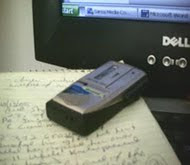Take last night's documentary on the War of 1812. I don't know about the rest of the country but there's been a lot of hype surrounding the upcoming bicentennial of the war.
According to PBS, the war doesn't get much recognition and is poorly understood. No wonder. Either the actual war and facts surrounding it are extremely complex or PBS messed up in editing the documentary.
I could have used a primer, or the producers should have simply offered the American/Canadian/British/Native American-First Nations perspectives in separate shows. About all I could glean from the program was that Madison (or some other president lol, seriously, I lost track) thought the war would be a cake walk, a matter of just marching in and the Canadians would regard the American troops as their liberators.
Yeah right.
As one of the Canadian historians said, the Americans underestimated just how hard the British and Canadian troops would fight for the territory. Kind of ironic that the Canadians are spending $27 million on commemorating the war, and Buffalo has only allocated $5 million.
So anyway, I did find it interesting to learn the origin of the saying "Don't give up the ship" and was fascinated to see pictures of the ship Niagara. That's the ship my paternal grandfather was on as he immigrated from Fort Erie to Buffalo.
********
Meanwhile, I had to laugh reading some of the comments on a Huffington Post article regarding Rick Perry's slip up on the Revolutionary War. He referred to it as occurring in the 16th century. NBC corrected him, saying it was the 18th century. Um, wouldn't 1776 be the 16th century?
Animal House LOL. The college decides to close Delta House, but Bluto tries to rally his frat house brothers with his speech:
"Did we give up when the Germans bombed us in Pearl Harbor?"
Frat brother: "Germans?"
Another frat brother: "Forget it, he's on a roll."
ROFL. No wonder Bluto had a GPA of 0.0.
That's the state of American knowledge of history, and I am in that pathetic state. PBS isn't helping me. Maybe their history documentaries should be cleared by the History Detectives first.
Things get a little clearer for me afer reading stuff on the Social Studies for Kids web site:
Part 1: A Balancing Act
The War of 1812 has often been called the Revolutionary War Part II. And in many ways, it was just that:
- It was a war between America and Great Britain
- It was caused in part by disagreements over shipping and trade on the high seas
- It involved fighting in America and in Canada
- It ended in an American victory
Overall, however, it was a war to decide how much influence the United States would have in foreign affairs.
 President Thomas
Jefferson was looking to keep American
goods flowing overseas and, at the same time, keep America out of foreign wars.
It was a balancing act, and the U.S. was bound to lose its balance sooner or
later.
President Thomas
Jefferson was looking to keep American
goods flowing overseas and, at the same time, keep America out of foreign wars.
It was a balancing act, and the U.S. was bound to lose its balance sooner or
later.
Britain and France were at war with each other, as was much of the rest of Europe. Both sides thought that American ships were supplying the other with food and weapons. Both British ships and French ships routinely stopped American ships on the high seas and demanded to search the cargo holds. Sometimes, these encounters were violent.
ROFL. "It was a balancing act, and the U.S. was bound to lose its balance sooner or later."
Though not involved in the war, we at least owe Russia a debt of thanks--were it not for the War of 1812 Overature being played on the Fourth of July we may have forgotten that the War of 1812 was an American victory!




"1812 was basically a disaster all around. It's one of those wars that no one really wants all that much, but happen anyway because of existing interests and tensions. e.g. WW1"